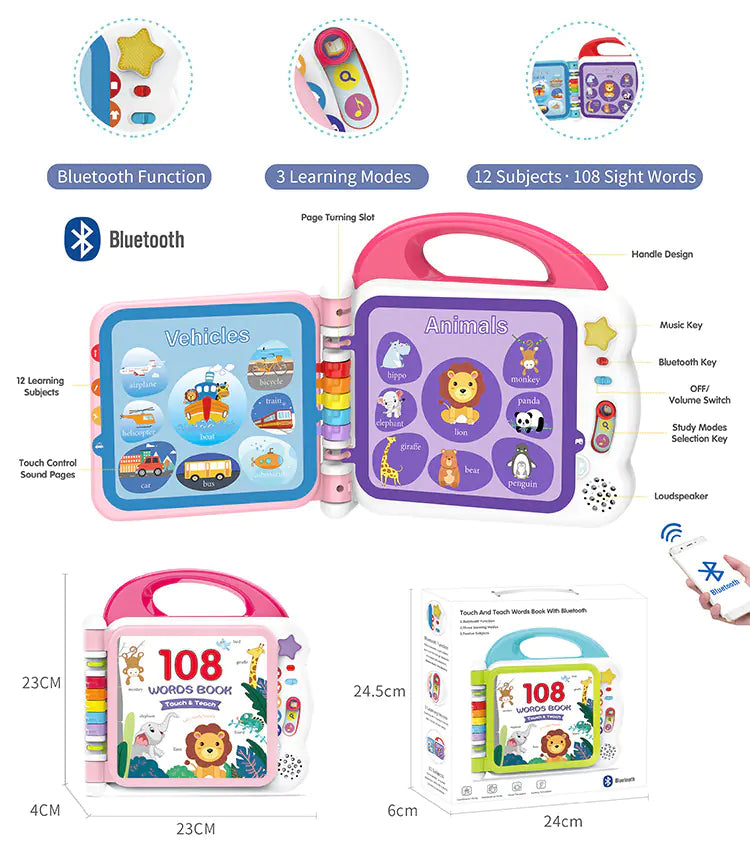Montessori toys are specially crafted tools designed to foster curiosity, independence, and skill development in children from newborns to early school age. Choosing the right Montessori toys can dramatically impact your child's growth by promoting cognitive, motor, and emotional skills through purposeful play. This article explores the seven best Montessori toys for different age groups, highlights their developmental benefits, and offers tips on using Montessori toys at home to build a strong foundation for lifelong learning.
Understanding Montessori Toys and Their Developmental Benefits
What Makes a Toy Montessori?
Montessori toys emphasize simplicity, real-life utility, and encouraging independent exploration. Typically made from natural materials like wood, these toys avoid loud noises or flashy lights, allowing children to focus and think critically. They often target one specific developmental skill at a time — such as fine motor coordination, sensory stimulation, or problem-solving — fostering meaningful, hands-on learning experiences.
Key Benefits of Montessori Toys
- Enhance concentration and attention span
- Develop fine and gross motor skills
- Promote sensory exploration and cognitive growth
- Build problem-solving and reasoning abilities
- Encourage independence and self-confidence
By integrating these toys into daily routines, children learn at their own pace, which nurtures motivation and deep understanding rather than passive play.
Montessori Toys by Age Group: From Newborns to 7 Year Olds
Montessori Toys for Newborns and Infants (0–12 months)
Montessori toys for newborns and babies focus on sensory stimulation and motor reflexes. For the 0 to 3 months phase, high-contrast black and white cards or soft mobiles can captivate vision development. From 3 to 6 months, simple grasping toys like wooden rattles or soft textured balls facilitate hand-eye coordination.
Montessori toys for 6 to 12 months might include activity gyms that encourage reaching and exploring, object permanence boxes, and baby-safe mirrors which develop self-recognition and movement skills.
Montessori Toys for Toddlers (1 to 3 years)
As infants transition into toddlers, Montessori toys evolve to support increased mobility and cognitive skills. For 1 year olds, toys such as stackers and shape sorters help develop spatial awareness and fine motor skills. Montessori toys for 18 to 24 months focus on problem-solving and hand dexterity with knobbed cylinders or wooden puzzles.
At 2 and 3 years old, Montessori toys often center on practical life skills like dressing frames, simple tools for pretend play, or building blocks to encourage creativity and coordination.
Montessori Toys for Preschool and Early School Ages (4 to 7 years)
Montessori Toys for 4 to 5 Year Olds
Montessori toys for 4 year olds aim at strengthening executive functions, such as planning and flexible thinking. Puzzles with increasing complexity, counting beads, and sorting activities introduce math concepts while maintaining focus. Creative toys like pretend play sets and wooden manipulatives encourage social and emotional development.
Montessori Toys for 6 to 7 Year Olds
For children aged 6 to 7, Montessori toys build on previous skills by introducing STEM concepts, fine motor challenges like model building, and language activities like alphabet blocks or storytelling kits. These toys foster abstract thinking and self-directed learning at home.
Top 7 Montessori Toys to Boost Child Development Skills
- 1. Wooden Stacking Toys: Ideal for newborns to toddlers, promoting hand-eye coordination and problem-solving.
- 2. Object Permanence Box: Great for 6 to 12 months, teaches cause and effect and object permanence.
- 3. Dressing Frames: Suitable for toddlers (2 to 4 years), encourages fine motor skills and independence.
- 4. Puzzle Sets: From 2 years up to 7 years, aid in cognitive development and spatial reasoning.
- 5. Knobbed Cylinders: For toddlers and preschoolers to refine grip and develop size differentiation.
- 6. Montessori Counting Beads: Perfect for 4 to 7 year olds to introduce early math concepts.
- 7. Pretend Play Sets: Encourage creativity, language skills, and social-emotional learning in preschoolers.
Best Practices for Using Montessori Toys at Home
Creating a Montessori-Friendly Environment
Setting up a Montessori play area at home involves organizing toys within easy reach, maintaining order, and rotating toys regularly to keep the child engaged without overwhelming them. Having designated shelves or baskets for different Montessori toys helps children learn to respect their environment and develop responsibility.
Encouraging Independent Play and Exploration
Montessori toys for home use should encourage self-directed play. Allow children to explore the toy without constant adult intervention, offer gentle guidance when necessary, and observe their progress. Letting children choose their own activities supports autonomy and builds confidence.
How to Choose the Right Montessori Toys for Your Child’s Age
Assessing Developmental Readiness
Every child's readiness varies, so observe your child’s current skills and interests. For example, a child ready to walk will benefit more from push toys and gross motor activities, while a child refining fine motor skills will enjoy stacking and sorting toys.
Age-Appropriate Complexity
Choose Montessori toys that match your child’s developmental stage. Toys that are too easy may bore, while those too advanced could frustrate. Age guidance like Montessori toys for 3 6 months or 9 to 12 months provide helpful benchmarks.
Conclusion
Montessori toys offer a thoughtful way to support your child's development across multiple skill areas by providing purposeful play adapted to different age groups. From stimulating newborns with sensory mobiles to engaging seven year olds with STEM-inspired kits, these toys promote independence, problem-solving, and creativity. Explore a curated selection of Montessori toys for home that grow with your child and encourage joyful learning at every step. Learn more about how the right Montessori toys can make a long-lasting impact on your child’s developmental journey today.


